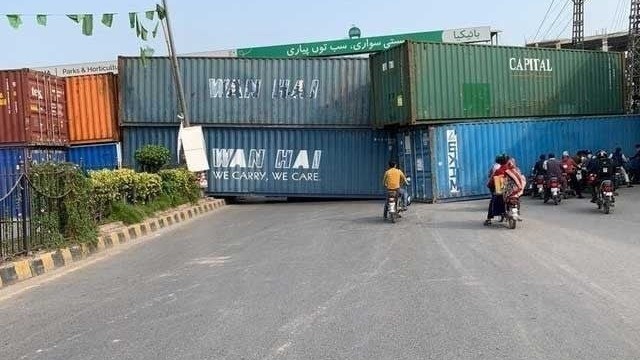As a proud Pakistani, I believe that our nation has the potential to rise above its challenges and create a brighter future for all. However, achieving this vision requires a collective effort from every corner of our society. Citizens, businesses, government, and civil society. Today, I am reaching out with a heartfelt call to action for all stakeholders to come together and collaborate in building a more equitable, sustainable, and just society in Pakistan.
The Role of Citizens
Every individual in our country has a role to play in this movement. As citizens, we must recognize our power to influence change. Whether it’s by supporting local businesses, participating in community service, or advocating for social justice, our actions can create ripples of positive impact.
Engaging in Community Initiatives
One of the most powerful ways to make a difference is by engaging in community initiatives. This could involve volunteering at local NGOs, participating in environmental clean-up drives, or supporting educational programs for underprivileged children. When we actively participate in our communities, we not only contribute to immediate improvements but also inspire others to get involved. For example, consider the impact of community-led initiatives like “Say No to Plastic” campaigns, which have gained momentum in various cities across Pakistan. By organizing workshops and awareness programs, citizens can educate their peers about the dangers of plastic pollution and encourage the adoption of sustainable alternatives. Such grassroots movements not only address pressing environmental issues but also foster a sense of unity and shared purpose among community members.
Advocating for Social Justice
Furthermore, as citizens, we can advocate for social justice by raising our voices against inequality and discrimination. Whether it’s through social media, community forums, or peaceful demonstrations, we must stand up for the rights of marginalized groups. In Pakistan, issues such as gender inequality, poverty, and access to education require our urgent attention. By supporting movements that promote women’s rights, for instance, we can help create a society where everyone has equal opportunities to succeed. Organizations like the Aurat Foundation and the Women’s Action Forum are already doing incredible work in this area, but they need our support. By amplifying their messages and participating in their initiatives, we can contribute to a more just society.
The Responsibility of Businesses
For businesses, the call to action is clear: Embrace Corporate Social Responsibility (CSR) as an integral part of your operations. While many companies in Pakistan have made strides in this area, there is still much work to be done. It’s not just about philanthropy; it’s about embedding sustainability and ethical practices into the very fabric of your business model.
Integrating Sustainability into Business Practices
Leading companies like Unilever, PTCL, and Coca-Cola are already setting examples by investing in community development and environmental initiatives. These organizations understand that their success is intertwined with the well-being of the communities they serve. By prioritizing environmental stewardship, fair labor practices, and community engagement, businesses can not only enhance their reputation but also contribute to the well-being of society. For instance, consider a local textile manufacturer that adopts sustainable practices by using organic cotton and implementing water-saving technologies. Not only does this reduce the environmental impact, but it also appeals to a growing market of eco-conscious consumers. By making sustainability a core value, businesses can differentiate themselves and build lasting relationships with customers who share their values.
Supporting Local Economies
Moreover, businesses should focus on supporting local economies. By sourcing materials from local suppliers and hiring local talent, companies can stimulate economic growth in their communities. This not only creates jobs but also fosters a sense of pride and ownership among community members. For example, a café that sources its coffee beans from local farmers not only supports the agricultural sector but also builds a connection with its customers. By sharing the stories of these farmers, the café can create a narrative that resonates with patrons, encouraging them to choose local over imported products.
The Role of Government
Our government has a crucial role in facilitating this transformation. Policymakers must prioritize social and environmental issues in their agendas. This includes enacting and enforcing regulations that promote responsible business practices, protect the environment, and ensure social equity.
Enacting Supportive Legislation
For instance, the government can introduce tax incentives for businesses that adopt sustainable practices or invest in community development. By creating an enabling environment for businesses to thrive while holding them accountable for their impact on society, the government can drive meaningful change. Additionally, legislation that protects workers’ rights and ensures fair wages is essential for creating a just society. By enforcing labor laws and promoting fair trade practices, the government can help level the playing field for all citizens, ensuring that everyone has the opportunity to succeed.
Collaborating with the Private Sector
Moreover, collaboration between the government and the private sector can lead to innovative solutions for pressing challenges, such as poverty alleviation, education, and healthcare. For example, public-private partnerships can be established to improve access to education in rural areas. By leveraging resources and expertise from both sectors, we can create sustainable solutions that benefit communities.
The Importance of Civil Society
Civil society organizations are the backbone of social change. They play a vital role in advocating for marginalized communities, raising awareness about critical issues, and holding both the government and businesses accountable. As we move forward, it’s essential for these organizations to strengthen their partnerships with businesses and government entities. By working together, we can amplify our voices and create a more significant impact.
Advocacy and Accountability
Civil society organizations can act as watchdogs, ensuring that businesses and governments uphold their commitments to social responsibility. By conducting research, publishing reports, and engaging in advocacy, these organizations can shed light on issues that require urgent attention. For instance, organizations focused on environmental protection can highlight the impact of pollution on public health, urging businesses and the government to take action.
Empowering Communities
Furthermore, civil society organizations can empower communities by providing them with the tools and resources they need to advocate for their rights. By offering training programs, workshops, and access to information, these organizations can equip citizens with the knowledge and skills necessary to effect change. For example, organizations that focus on women’s empowerment can provide training in entrepreneurship, helping women start their own businesses and become financially independent. This not only benefits individual women but also contributes to the overall economic growth of the community.
A Collective Vision for the Future
The journey toward a just and sustainable society in Pakistan will not be easy, but it is necessary. We must envision a future where every citizen has access to quality education, healthcare, and economic opportunities. A future where our environment is protected, and our natural resources are managed responsibly. A future where businesses succeed while making a positive impact on society. This vision can only be realized through collaboration among all stakeholders. Let’s commit to working together, sharing our resources, knowledge, and expertise to create a better Pakistan for ourselves and future generations.
The Time for Action is Now
Ultimately, I urge every Pakistani! Whether you are a citizen, a business leader, a government official, or a member of civil society, to take this call to action seriously. Let’s come together to build a society that reflects our values of justice, equity, and sustainability. The moment for change is here, and together, we can create an impact. Let’s not just talk about responsibility; let’s embody it. Let’s take action, inspire one another, and create a brighter future for all. Together, we can transform our beloved Pakistan into a beacon of hope and progress. As we embark on this journey, let’s remember that every small action counts. Whether it’s choosing to support local businesses, advocating for social justice, or holding our leaders accountable, we all have a role to play. Let’s unite in our efforts and work hand in hand to create a society that we can all be proud of. The time for action is now. Let’s make it happen, together!



